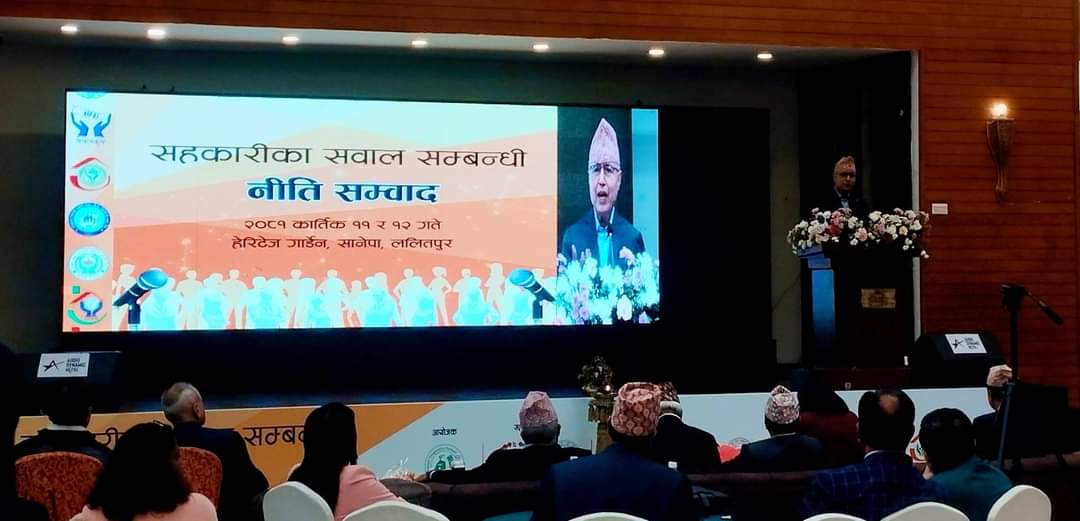Lalitpur, Nepal – A two-day "Policy Dialogue on Cooperative Issues," organized by the National Cooperative Federation of Nepal Ltd., successfully concluded today at Heritage Garden in Sanepa. The event brought together leaders, policymakers, and cooperative experts to discuss the role of cooperatives in advancing sustainable development and environmental stewardship across Nepal.

The dialogue offered a platform for addressing both the challenges and opportunities in the cooperative sector, with stakeholders from diverse sectors contributing to discussions on enhancing cooperative effectiveness to support local economies and advance environmental goals. Participants highlighted how cooperatives can promote eco-friendly practices, especially in rural areas where natural resources are essential to livelihoods. By encouraging community-based decision-making and investment in green technologies, cooperatives have the potential to be pivotal players in Nepal’s development and environmental conservation efforts.
Focusing on Sustainability and Eco-friendly Practices
Central to the discussions were topics on implementing sustainable practices within cooperative models to minimize environmental impact. Experts highlighted how cooperatives, especially those in agriculture and forestry, can adopt regenerative practices that contribute to soil health, water conservation, and biodiversity preservation. By encouraging cooperatives to transition toward eco-friendly methods, Nepal could not only protect its rich biodiversity but also position itself as a leader in climate-resilient community-based initiatives.
"As cooperatives in Nepal expand, integrating sustainable practices is vital for long-term environmental health and economic resilience," remarked Dr. Damodar Regmi, Secretary of the Ministry of Land Management, Cooperatives, and Poverty Alleviation. "Through policy alignment and community support, cooperatives can be a transformative force in addressing the country’s environmental challenges while bolstering local development."
Strengthening Cooperative Governance for Development
The dialogue also examined the governance structures of cooperatives, recognizing that robust policies are essential to ensure that cooperatives operate transparently and inclusively. A strong governance framework will enable cooperatives to effectively contribute to regional development, creating employment opportunities and reducing economic disparity. Government officials proposed that enhancing cooperative governance could also help in achieving the Sustainable Development Goals (SDGs), especially in areas like poverty reduction, responsible consumption, and climate action.
The event concluded with a call to action for cooperative stakeholders, urging them to adopt progressive policies that could amplify their impact on both the environment and local economies. By aligning cooperative growth with sustainable development goals, Nepal is set to harness the full potential of its cooperative sector, fostering a balance between economic growth and environmental sustainability.
Way Forward for Cooperatives in Nepal
Looking ahead, the National Cooperative Federation of Nepal Ltd. will establish a working committee to monitor the implementation of the discussed policies. This committee will focus on guiding cooperatives in adopting sustainable practices and promoting awareness around the role of cooperatives in development and environmental stewardship.
This event marks a significant milestone for Nepal's cooperative sector, underlining the need for sustainable practices and strong governance as pillars of cooperative development.